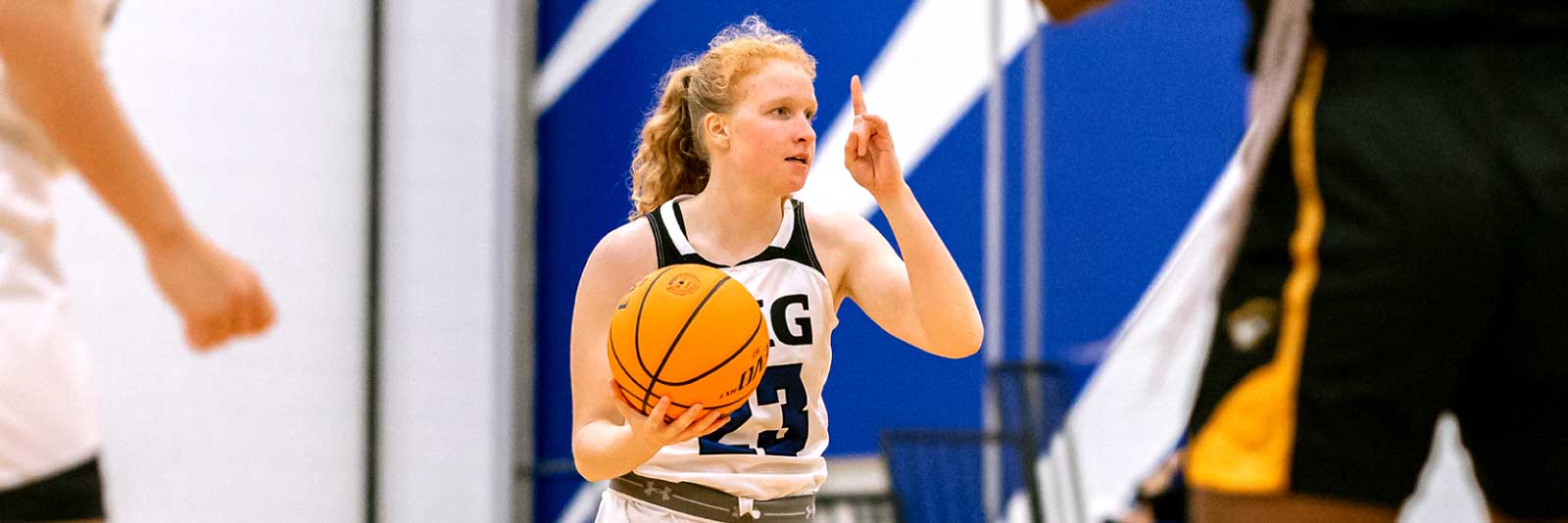NJCAA Women’s Basketball Colleges and JUCO Women’s Basketball Teams

When it comes to finding the best college fit, recruits tend to set their sights towards NCAA and NAIA programs. However, there’s one option that they tend to overlook—2-year junior colleges, or JUCO women’s basketball programs—that are growing in popularity and size. D1 and D2 college coaches turn their attention towards top JUCO women’s basketball schools when building out their rosters. In 2018, 1.2 percent of women’s basketball players at the high-school level went on to compete at a D1 college. Meanwhile, 7.8 percent of junior-college basketball players transferred to a D1 women’s basketball program that same year. At the end of the day, recruiting JUCO women’s basketball athletes is a safer bet—coaches prefer to recruit players who are not only familiar with balancing demanding athletic and academic schedules at the college level, but also more developed athletically than high school recruits.
Competing at junior colleges with women’s basketball programs come with some major perks—in addition to being more likely to end up at the NCAA D1 level than high-school recruits, JUCO women’s basketball schools are typically a more cost-effective option than going to a 4-year private or public college with little or no financial aid. NJCAA colleges also offer athletic scholarships—with 15 full rides provided at the NJCAA D1 level and 15 partial scholarships—typically enough to cover tuition, books and fees—offered at the NJCAA D2 level. Checkout our article on basketball recruiting rankings: How the process works.
Insider tip: Unlike women’s basketball programs at the NAIA level, NCAA and NJCAA women’s basketball is considered a headcount sport. That means college coaches must award each scholarship (whether a full-ride or partial award) to a single recruit—if there are more than 15 recruits on a team, some will not receive a scholarship at all.
For student-athletes unsure what major they want to pursue or even more generally, undecided as to where they want to go, junior college also provides a better option than taking some time off school or your sport.
How many NJCAA women’s basketball teams are there?
The largest regulatory body of junior colleges is the National Junior College Athletic Association (NJCAA). There are currently 417 NJCAA women’s basketball programs across the country, operating at either the NJCAA D1, D2 or D3 level. In addition to competing at different division levels, NJCAA women’s basketball colleges also compete within one of 24 regions based on their geographic location. These regions help determine conference champions and eventually, lead up to the NJCAA Final Four women’s basketball championships at each division level. Learn more about AAU girls basketball.
- NJCAA D1: 186 member colleges
- NJCAA D2: 135 member colleges
- NJCAA D3: 96 member colleges
For a breakdown of JUCO women’s basketball programs by region and division level, check out the NJCAA women’s basketball college directory.
While the NJCAA has the most member colleges, there are a few other athletic associations and conferences that include junior colleges with women’s basketball programs, including the California Community College Athletic Association (CCCAA), United States Collegiate Athletic Association (USCAA) and the Association of Christian College Athletics (ACCA). Altogether, the NJCAA and other major athletic associations regulate over 850 JUCO women’s basketball programs across the country.
NJCAA women’s basketball rankings and top JUCO women’s basketball schools
A few organizations provide NJCAA women’s basketball rankings, including the NJCAA, JUCO Weekly and the California Community College Athletic Association (CCCAA). Here are the top 10 JUCO women’s basketball programs, according to the NJCAA:
- Hutchinson Community College
- Gulf Coast State College
- Collin County Community College
- Northwest Florida State College
- New Mexico Junior College
- Wabash Valley College
- Shelton State Community College
- Eastern Florida State College
- McLennan Community College
- Pearl River Community College
Explore all of the JUCO women’s basketball rankings at the NJCAA Division 1, Division 2 and Division 3 levels.
Then, search through all junior colleges with women’s basketball programs below.